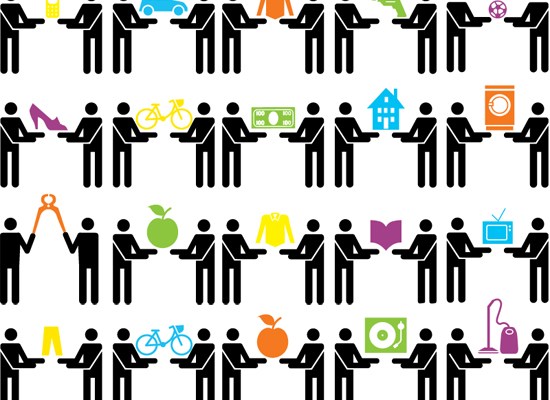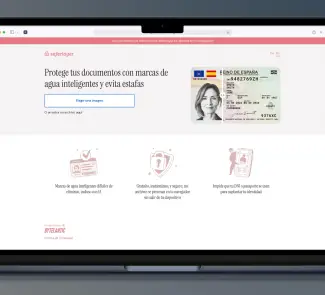The collaborative consumption, ie, share a product (and pay) with other consumers, it is becoming an increasingly strong trend.
Is it true that the global recession has brought a cultural change when consuming? The trend seems to say yes. Increasingly, the society, especially nowadays with the irruption of digital culture, looks very closely at the costs and tries to look for options and services more economically competitive. The only possible way is then reduce the number of intermediaries that connects consumers with service providers. Thus, in recent years have proliferated multiple platforms and different portals that connect hundreds of users with same interests that meet in a more agile, efficient and economical way.
Everyone begins to notice that collaborative consumption is emerging in many parts of the globe. Beyond the implicit financial savings, anyone can find a «modus vivendi», the philosophy of sharing, loan, rent and share as they are now more prominent and seem to follow a «trend» observed by many sociologists. The collective strength is reinventing how services are consumed and the Internet is partly “guilty” to create a more fluid market that facilitates the connection of people with common goals.
The «prosumers», people who are producers and consumers at the same time, are an essential part of this new game. The reputation also has an important role by opening a renewed faith in online communities. And Spain is not far behind in this trend. Recently, different initiatives are raising and people are going to talk a lot in the near future: we are talking about brand clothes, p2p rental cars or even home swap.
Polo Villaamil tells us that «clients of LaMasMona are tired of buying a new dress every time they have a formal event to use only a few times and then leave gathering dust in their closet. Renting has become the smarter alternative for these women, who have no fear to admit that her look is rented, and the clothing is no longer a concern whenever you receive an invitation to another wedding. «
Moreover, Fernando Almenara from Mambocar comments that «collaborative consumption is a trend that is coming to Spain but in the U.S. has great relevance. In the case of travelling, this is a new way to explore the model, where contact with local people we visit is an ingredient of the route and gives the chance to stick in people’s mind, something that can hardly be achieved with the classic way of travelling. It’s the contact with locals that gives us a unique experience.
Xavi Laballós, founder of a start-up that promotes home swaps says: «There may be people that this still sound for them like an utopic or temporary trend but eventually we realize that collaborative consumption is just a way to consume a lot in a more smart, rational and sustainable way than we were used to. When someone asks where you would like to travel, almost everyone always responds with a never-ending list of cities or spots. But when they are asked why they have not gone there yet, the answer is often the same: we can’t afford this budget. They tend to think that money is the only asset to get access to what we want and this is precisely where collaborative consumption breaks the rules.»
«MyTwinPlace was born to enable any person to travel to your favourite destination and money is not an impediment. Today, the community of MTP is traveling around the world sharing their homes among them. This is not only a very considerable saving on accommodation but we are also connecting people that make their travel experiences much more personal and genuine. It is amazing to see how our users prepare detailed city guides for their home swappers, listing places that only the locals know. It’s also noticeable to see after the exchange they keep the relationship alive. And what is even most shocking, home exchange travel is very addictive. Once you try it, you won’t travel anymore in the classic way» affirms Xavi.
Nevertheless, what we see with this trend is that what really matters is to have access to what you want instead of possessing it. Why is it necessary to have the DVD, when all I want is to enjoy the movie? Sharing the costs among several people is the key to access to more services and activities.
About the start-ups:
- With La Más Mona, women can rent dresses and accessories from the best designers online, for as little as 50€!
- Mambocar is the P2P car rental for travellers in Europe.
- MyTwinPlace is the home-swapping website that allows vacation rental owners to get free accommodation around the world in just 1 click.
More information about this trend here:
- http://gigaom.com/2013/10/19/four-business-opportunity-that-remove-barriers-to-the-sharing-economy/
- http://blogs.elpais.com/eco-lab/2012/01/consumo-colaborativo-cuantas-cosas-poseemos.html
- http://www.elconfidencial.com/tecnologia/2013-10-11/puede-el-consumo-colaborativo-destruir-el-sector-del-transporte-y-los-hoteles_39858/









